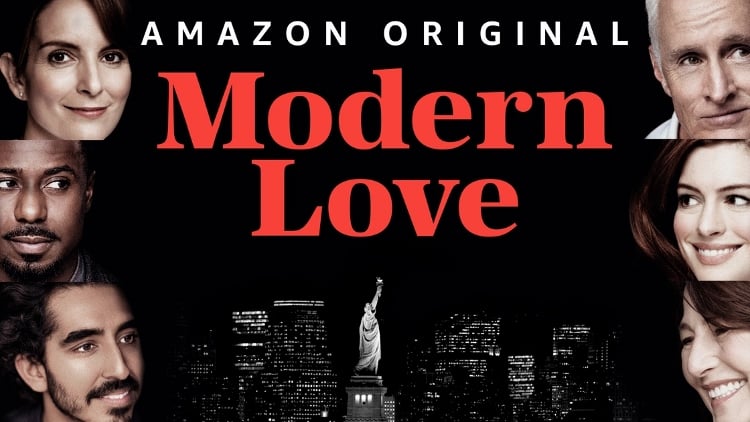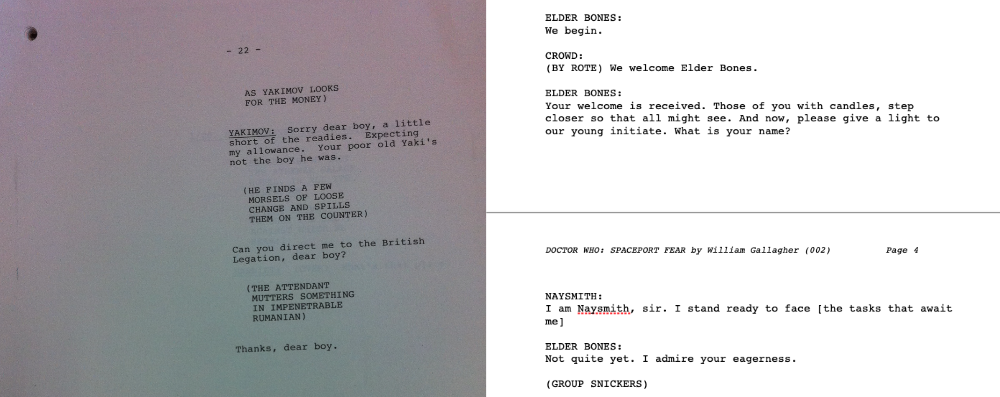I have eaten all the chocolate. And while I wait for the manufacturers to catch up, I’ve been grumbling. Chiefly because of a YouTube video I watched last night called “Lisa Kudrow on creating Phoebe on Friends”. I didn’t really hope that it would be her talking about how David Crane and Marta Kauffman created this great character that she got to play, but I did hope the title was a mistake.
It wouldn’t be the first time that a headline was written by someone who thinks actors make it all up. I had a stand-up row with an entertainment editor once who entirely believed that. I’ve had people enthuse about incredible ad libs an actor has thrown into a stage show and then I’ve heard precisely those same ad libs when I’ve seen the same production a year later.
But if an entertainment editor doesn’t know and a theatregoer somehow wants to enjoy believing the actors invent their lines, at least you would expect that an actor would know what acting actually is.
Well, I say that, there’s still the case of some cast members in The Usual Suspects who insist they didn’t know if their character was the baddie or not until they saw the film. Fellas, fellas, it’s in the script. Page 142. Seriously.
Or there were those couple of times on BBC police drama New Tricks where the ensemble cast swore up and down that they rewrote every word of every script. Some writers and some directors said “prove it”, while all writers and all directors and all producers said “bollocks”. These were fine actors and yet for all their vehemence, those scripts did not have one word rewritten. Writers on the show were saying come on then, show us a comma you changed, if you think you’re hard enough.
I would’ve said that Lisa Kudrow is remarkably talented. I would’ve said that the reason I can read the pilot script to Friends and cannot hear anyone else’s voice in that role is a mark of how extraordinarily well she played her character. But unfortunately it turns out that she would say she created that character.
That YouTube video is painful. She goes into great detail about her process and how she decided on the character. Then the interviewer eventually asks something like “Wasn’t it written that way?” and Kudrow basically says “Oh.”
She expands that into “maybe” before throwing in that she doesn’t remember. And then in the last moments it’s as if you can see her realising that this is why the producers said they liked how she did it.
Lisa Kudrow is unquestionably more talented than I am, unquestionably. She’s also vastly more successful. But there is one thing I have done that she hasn’t: I have read the script.
It’s common to hear of actors who don’t read the scripts –– Kudrow is blatant and entirely unconcerned about how she skipped everything but her character’s dialogue –– and I don’t know why it seems to be accepted.
I actually completely get why actors tend to thank directors and rarely writers. The writer may not even be there during filming and certainly they’re not as hands-on involved at that stage as the director or other cast. Naturally you’re going to bond most with the people you work with.
I said I had no actors to grind and clearly I have some. Yet I think of casts who’ve performed my words and they’ve been a marvel. I think of Conrad Nelson playing Iago and being so incredibly frightening in that role that I was scared of him over a drink in the bar afterwards. My 58keys YouTube series featured an interview last Christmas with actor/writer Debbie McAndrew and, unprompted by me, wanted to mention how galling actors find it when other actors do this thing of claiming to have created their characters.
And yet there are actors who are hired and don’t bother to read the script. You had one job…


